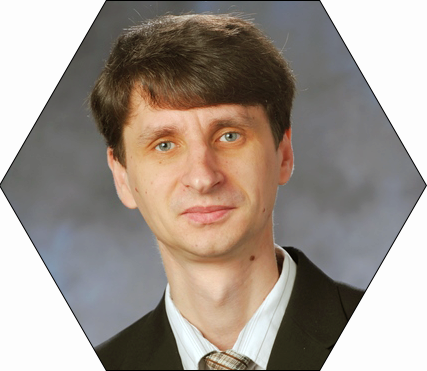Education
- Ph.D., Technion-Israel Institute of Technology, Israel, 2003
- M.Sc., Technion-Israel Institute of Technology, Israel, 1999
- Dipl.-Ing. in M.E., St. Petersburg State Polytechnic University, Russia, 1994
Teaching Interests
Professor Alexeev’s research focuses on fundamental and applied problems in fluid mechanics, complex fluids, and soft matter physics, encompassing multiphase and biological flows, fluid–structure interactions, interfacial phenomena, microfluidics, and capillarity. Utilizing advanced computational methodologies and high‑performance computing, he investigates fluid systems in which soft and compliant materials interact with viscous flows, with broad relevance to engineering, biological, and medical applications.
Research Interests
Professor Alexeev’s teaching interests include undergraduate and graduate courses in fluid mechanics and computational methods for modeling fluid flows.
Recent Publication
- M Lee, Z Song, S Kocherla, A Adams, A Alexeev, SH Bryngelson, A multiple-circuit approach to quantum resource reduction with application to the quantum lattice Boltzmann method, Future Generation Computer Systems 174, 107975, 2026.
- M Kaynak, MD Aşık, EE Inan, M Prondzynski, H Ghasemzadeh, ..., Mechanotyping of Organoids for Assessing Drug‐Induced Injuries, Advanced Materials, e09675, 2025
- CL Jawetz, Z Song, SH Bryngelson, A Alexeev, Quantum lattice Boltzmann algorithm for heat transfer with phase change, arXiv preprint arXiv:2509.21630, 2025.
- CL Jawetz, A Alexeev, Hydrodynamic performance estimation of undulating elastic plates using the Fourier neural operator, Physics of Fluids 37 (10), 2025.
- M Karimi, A Poorghani, AA Pitenis, A Alexeev, Mesoscale Modeling of Hydrogels Under Frictional Shear Stress, Macromolecules 58 (23), 12440-12447, 2025.

